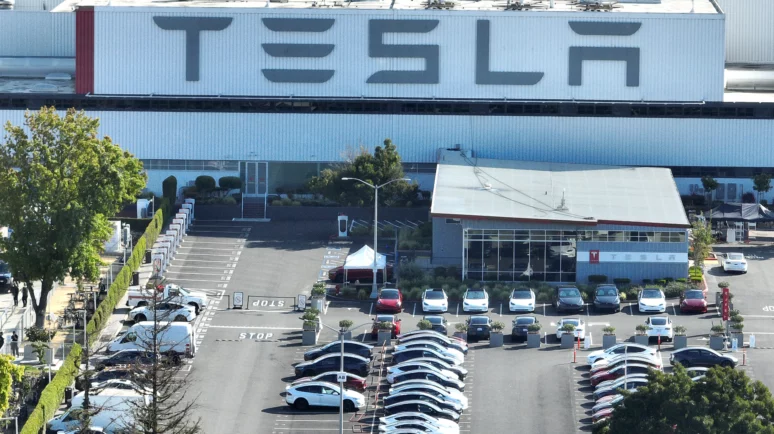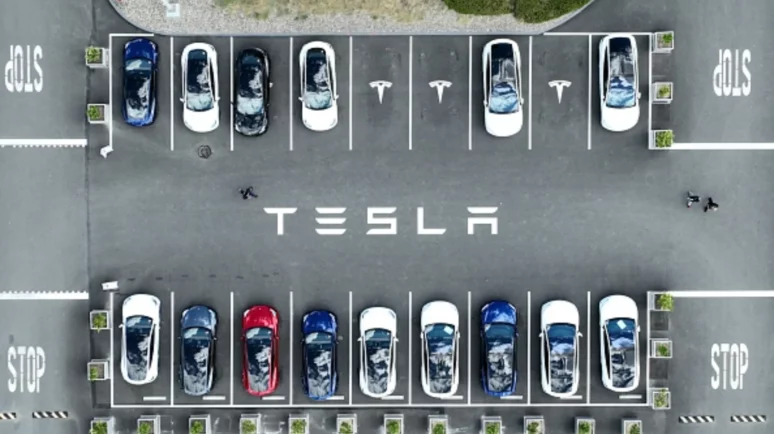Elon Musk Hints at Tesla India Investment – Faces Competition From Tata Motors and MG Motors

Elon Musk is aiming to bring Tesla cars to India where he'll face tough competition from Tata Motors and MG Motors. l Source: Indian Press Information Bureau (PIB) / Handout/Anadolu Agency via Getty Images
- Tesla CEO Elon Musk is planning to visit India to discuss setting up a factory and announce investments.
- This move comes as Tesla faces slowing demand in its main markets and increased competition from China.
- The Indian EV market is expected to grow significantly in the coming years.
Tesla’s CEO Elon Musk will visit India this month for a meeting with Prime Minister Narendra Modi, where he’s reportedly set to announce plans for investments and the establishment of a new factory in the country.
However, Musk’s strategy to penetrate India’s electric vehicle market with Tesla may encounter stiff competition from established players like Tata Motors and MG Motors, both prominent names in the region.
Tesla Investment In India
Following their last encounter in New York in June last year, Musk and Modi engaged in ongoing discussions. Tesla advocated for reduced import taxes on electric vehicles as it evaluated the prospect of establishing a factory in India. India recently unveiled a new EV policy, slashing import taxes from 100% to 15% on select models, provided the manufacturer invests a minimum of $500 million and establishes a local factory.
According to Reuters, Tesla officials will conduct site visits in India this month to assess potential locations for a manufacturing facility. This would require an investment of approximately $2 billion. In addition, Tesla has initiated production of right-hand drive vehicles at its German plant. And it plans to export these vehicles to India later this year.
Musk emphasized the importance of electric cars in India this week. “India should have electric cars like every other country has electric cars. It’s a natural progression to provide Tesla electric vehicles in India,” he said.
Tesla’s expansion into the Indian market coincides with a slowdown in EV demand in its primary US and Chinese markets. This is compounded by increased competition from Chinese automakers. The company reported a decline in first-quarter deliveries, falling short of analyst expectations.
Tata And MG Are Its Main Competitors
Musk will encounter formidable competition from one of the world’s largest EV markets. Tata and MG are current market leaders in India’s EV revolution, particularly in the passenger four-wheeler segment.
Despite MG India’s incorporation of practical features and ample creature comforts into their EVs, they only command a fraction of Tata’s sales. Tata notably outpaces MG in the Indian EV market.
While MG offers just two EV models, the MG Comet and the MG ZS EV, Tata boasts the broadest EV portfolio in the passenger car sector. Tata’s Nexon EV and Tiago EV are among the most sought-after EVs in India, catering to diverse consumer preferences.
Price presents another battleground for Musk in India. In fact, Tesla cars command significantly higher prices than Tata and MG counterparts. Although Tesla has seen price reductions in parts over the past year, there remains a perception that MG’s servicing costs, whether for EVs or internal combustion engine vehicles, are comparatively lower.
To compete effectively, MG must emphasize the affordability of its servicing, aligning it with other major EV brands. By offering competitive pricing, even marginally, MG stands to capture a substantial portion of the market in a relatively short timeframe.
Indian EV Market Figures
Based on government data , in 2023, India saw 72,930 newly registered four-wheeled electric vehicles. While this figure nearly doubled compared to 2022, the country’s transition to e-mobility primarily centers on two-wheelers like mopeds, as well as e-rickshaws and other three-wheelers. These constitute 56% and 38% of total EV sales, respectively.
In 2023, electric vehicles captured a market share of 6.3%. This marked a significant surge from pre-pandemic levels of below one percent. Despite this growth, the sustainability of the momentum, fueled by over $600 million in government subsidies through the FAME-II program, remains uncertain. The government’s current objective is to achieve a 30% EV market share by 2030.
The India Electric Vehicle market is projected to expand significantly, with an estimated worth of $34.80 billion in 2024, poised to reach $110.74 billion by 2029, growing at a notable CAGR of 26.05% during the forecast period (2024-2029).

The dominant segment, Hybrid Electric Vehicles (HEV), benefits from state subsidies and efforts to promote Battery Electric Vehicle (BEV) adoption among private vehicle owners and corporate fleets. Meanwhile, BEVs experience the fastest growth, propelled by government regulations and incentives.
In terms of vehicle type, commercial vehicles lead the market, while passenger vehicles hold the largest share in electric vehicle sales in India. This is due to the rising demand for passenger vehicles, although the availability of electric commercial vehicle models in India remains limited.


